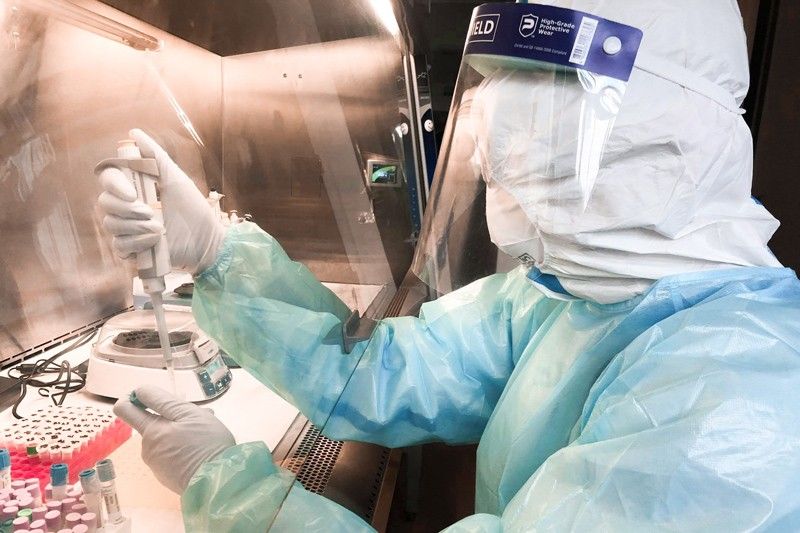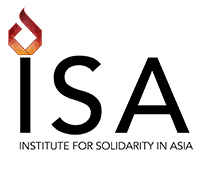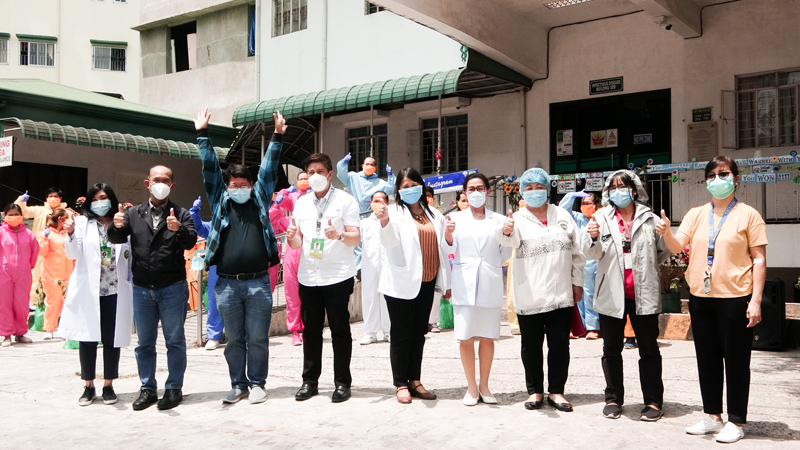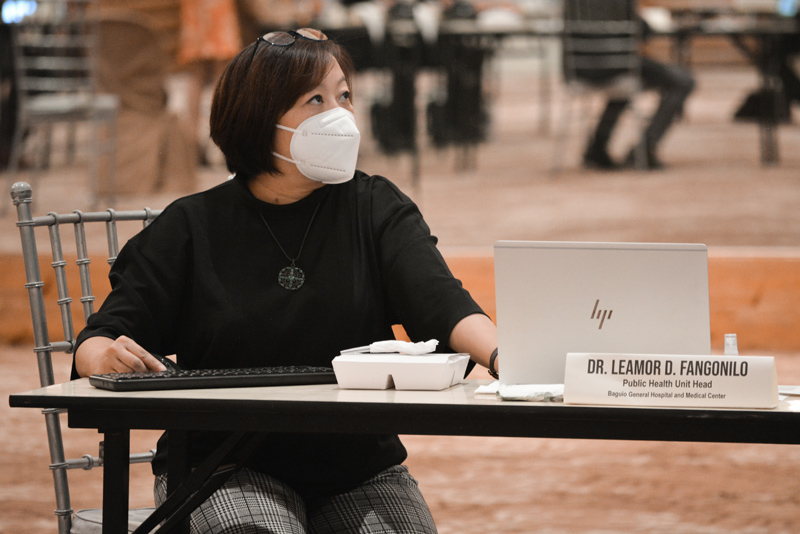How Baguio public hospital reinvented itself in time for a COVID-19 response

The Institute for Solidarity in Asia, a non-profit organization committed to transforming the public sector, is a content partner of Philstar.com.
 MANILA, Philippines – It has been months since a novel coronavirus virus first entered our country and shook up our old ways of living. As Filipinos followed the news, we witnessed the many vulnerabilities of our social systems brought out in the open one after the other. Though some sectors continued to thrive with the new demands, many others were greatly weakened, bound by the difficult challenges to which there were several moving parts.
MANILA, Philippines – It has been months since a novel coronavirus virus first entered our country and shook up our old ways of living. As Filipinos followed the news, we witnessed the many vulnerabilities of our social systems brought out in the open one after the other. Though some sectors continued to thrive with the new demands, many others were greatly weakened, bound by the difficult challenges to which there were several moving parts.
The local health sector is one of those that has been taking the brunt of the impact since the start. With delayed nationwide coordination, logistical constraints and capability limits weighed heavily on the hospitals’ COVID-19 response plans. Still, against the many hurdles thrown at them, Philippine hospitals have shown strength and resourcefulness under pressure.
One such hospital that was quick to adjust to the sudden changes was the Baguio General Hospital and Medical Center. Because of the discipline of governance of the institution even before the storm came along, the BGHMC was able to keep its head above water as it cared for the citizens of Baguio City and the Cordillera Administrative Region. Though its initial governance journey was shaken up by the pandemic, this only made BGHMC’s strategic management capabilities shine brighter as it responded to COVID-19 cases and geared toward more crisis-ready specialty services.

Before the storm
Located at the center of Baguio City, the BGHMC is an 800-bed capacity tertiary teaching and training referral hospital with specialty services catering to CAR and neighboring provinces. A few years ago, the BGHMC realized that capabilities as a hospital were not enough to accommodate rising cases of lifestyle illnesses from the region. Rather than keep referring patients to higher-level institutions in Manila, the BGHMC enrolled in ISA’s Performance Governance System in 2018 to address limitations of its services. Through this, the BGHMC crafted a plan to become an end-referral hospital with sub-specialty centers for brain, heart, trauma, kidney, eye and lung.
Since taking its first steps in the good governance pathway, the BGHMC garnered many milestones and awards. Dr. Gwynette Dizon, the hospital's strategy head, accounted some of the highlights, including the alignment of its budget to strategic deliverables; the implementation of around 20 clinical pathways (i.e. the outline of medical services needed for a specific health issue) for the top causes of morbidity in the hospital; and the active pursuit of 20 collaborative research projects. Their in-house digital innovations have also been lauded by other institutions, and at the beginning of 2020, they were already appointed as a subnational center for certain specialty services.
“Of course, we’re very proud of all our units because they've done a lot,” Dr. Dizon said. “Sometimes it’s difficult for us to let everyone understand this process in one sitting, but we can see that they're really excited that at least there is a plan,” she added.
Spurring into action
These plans, however, were momentarily knocked aside when the COVID-19 pandemic entered the country. Like many hospitals, the BGHMC had to grapple through the uncertainty surrounding the virus, from which many of the challenges stemmed.
Dr. Leamor Fangonilo, head of the hospital's public health unit, recalled the situation when the virus first came. The main source of the surge then, she said, was the influx of overseas Filipinos, locals and foreigners coming to the city, coupled with the constraint of very limited mass testing.
It did not take long, however, for BGHMC to spur into action. As the only tertiary hospital catering to the region, it immediately coordinated with the City Government and the Department of Health (DOH) Regional Office to draw its COVID-19 response plan.
“We adapted the Prevent-Detect-Isolate-Treat strategy of DOH wherein we have to intensify the Infection Prevention, Detection, and Control measures in our hospital,” Dr. Fangonilo said. “Early January to February, we already activated the Incident Command System. We designated a place for our operations center [for] all the communications.”
The BGHMC was also able to intensify mass testing through generous donations of RT-PCR and RNA extraction machines and the training of medical technologists who could unload the burden of testing at the hospital. Aside from this, it followed stricter triaging to segregate COVID and non-COVID patients, and established an off-site quarantine facility.
Enablers and champions
For Dr. Fangonilo, what played a crucial role in their pandemic response strategy was communication and information, through which they were able to address the fears and concerns of the staff and the harsh stigma toward the healthcare workers who were received unpleasantly in their own communities.
Another factor that enabled their response was the Multi-sectoral Governance Council or MSGC. Part of the performance governance program elements, the MSGC is typically composed of external stakeholders who commit to the attainment of the institution’s goal. During this pandemic, the MSGC, chaired by Baguio City Mayor Benjamin Magalong himself, proved to be highly effective in assisting hospitals, as attested by Dr. Fangonilo.
“We have seen [that] this Multi-sectoral Governance Council is very important during these times. Connections are very important and they helped us so much,” said the public health unit chief.

Road of reinvention
With the pandemic seemingly here to stay, the BGHMC now moves to readjust hospital operations and, along with this, its budget.
“We have to have new guidelines for [COVID] response. The units are coming up with new clinical pathways to incorporate the COVID response so that when patients come in, we already know what to do,” Dr. Dizon said.
“[We’ll also do] tighter triaging in our hospital premises and monitoring in the use of PPEs, face masks and face shields. Our focus is prevention — to reduce the vulnerability of everyone, not only the patients but [also] the health workers," she added.
Dr. Fangonilo also reiterated the hospital's pledge to continue its governance practices. We will make sure that our policies for response for pandemics like this are in place. We will also integrate Infection Prevention and Control policies in the culture of our hospital safety, and reinvent the new workplace environment.”
Reinvention indeed seems to be the next move for the BGHMC. Though the hospital’s performance governance journey was delayed and its priorities modified, it only made it aim for more relevant goals as they now seek to include Infectious Diseases in their targeted specialty centers.
For the BGHMC, even as the road presented new twists and turns and the conditions changed day by day, good governance remains in the driver's seat, allowing it to navigate forward to rebuild the strength of the health sector.
- Latest

























